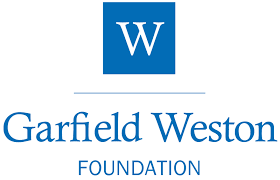Weaver's Company Benevolent Fund
Background
The Weavers' Company Benevolent Fund was set up in 1973 with funds from The Worshipful Company of Weavers, which is the oldest City of London Livery Company and has a history dating back before 1130 AD.
Through its Benevolent Fund, the Weaver's Company provides funding for smaller charitable organisations that are providing services for young people who are vulnerable and at risk of becoming involved with crime.
The funding is intended to support work in the following areas of interest:
- Young offenders
- Ex-offenders
- Young disadvantaged people, especially those at risk of criminal involvement.
Objectives of Fund
Through its Benevolent Fund, the Weaver's Company provides funding for smaller charitable organisations that are providing direct services for young people who are vulnerable and at risk of becoming involved with crime.
The funding is intended to support work in the following areas:
- Young offenders.
- Ex-offenders
- Disadvantaged young people, especially those at risk of criminal involvement
Value Notes
The maximum grant is usually £15,000 per annum.
Grants are normally awarded for one year only; however, in exceptional cases, applications for multi-year funding of up to three years, will be considered.
Match Funding Restrictions
Applicants must show that they have investigated other sources of funding and made plans for the future, which should include replacement funding if appropriate.
Who Can Apply
UK registered charities or organisations in the process of applying for registration are eligible to apply.
Priority will be given to smaller organisations which offer direct services. Local organisations such as those working in a village, estate or small town should normally have an income of less than about £100,000. Those working across the UK should normally have an income of not more than about £250,000.
Location
United Kingdom
Restrictions
Funding will not be given for the following:
- Long-term support.
- General appeals, sponsorship, marketing or other fundraising activities.
- Endowment funds.
- Bursaries.
- Long-term capital projects.
- Grant-giving charities.
- Retrospective funding.
- Replacement funding for work that should be covered by statutory funding.
- Building projects.
- Capital projects to provide access in compliance with the Disability Discrimination Act.
- Personal appeals.
- Individuals.
- Umbrella bodies or large, established organisations.
- Organisations outside the UK.
- Overseas expeditions or travel.
- Work with children under five years of age.
- Universities or colleges.
- Medical charities or those involved in medical care.
- Organisations of and for disabled people.
- Environmental projects.
- Work in promotion of religious or political causes.
Eligible Expenditure
Funding is available for the following:
- Helping disadvantaged young people - The object of the fund is to support projects working with disadvantaged young people to ensure that they are given every possible chance to meet their full potential and to participate fully in society. Young people are normally defined as being aged from 5 to 30 years.
- Supporting offenders and ex-offenders, particularly those under 30 years of age - Many offenders and ex-offenders suffer from a variety of difficult and complex problems and they are amongst the most vulnerable members of society. Funding is available for work that addresses the social and economic problems faced by this group and their families, and provide them with support, life skills training and a way back into education, training and/or employment, so that they may reintegrate and make a positive contribution to society.
Eligible expenditure includes:
- Pump-priming - particularly from small community-based organisations where the grant would form a major element of the funding.
- Project funding - preference is to support projects where the grant is used for an identified purpose.
- Associated project costs - applicants should include the cost of any overheads associated with the work, such as office/secretarial support, so that the project is not under-funded.
- Core costs for new projects - such as general administration and training that enable an organisation to develop and maintain expertise.
- Innovative or pioneering work - that could inspire similar work in other areas of the country.
- Continuation funding - ongoing funding for successful projects, which have proved their worth.
- Emergency or deficit funding for an established organisation - in exceptional circumstances. This funding usually goes to charities which the Company knows or has previously supported.
How To Apply
The Grants Committee meet three times a year.
The remaining closing date for applications in 2023 is midday on 16 November for consideration in February 2024.
Any applications that arrive too late for consideration at one meeting are automatically rolled forward to the next.
Application forms are available to download from the Trust's website.
The completed form must be printed, signed and posted to the Trust's office along with the supporting documents. It must arrive by midday on the closing date.
Contact the Weaver's Company for further information.







